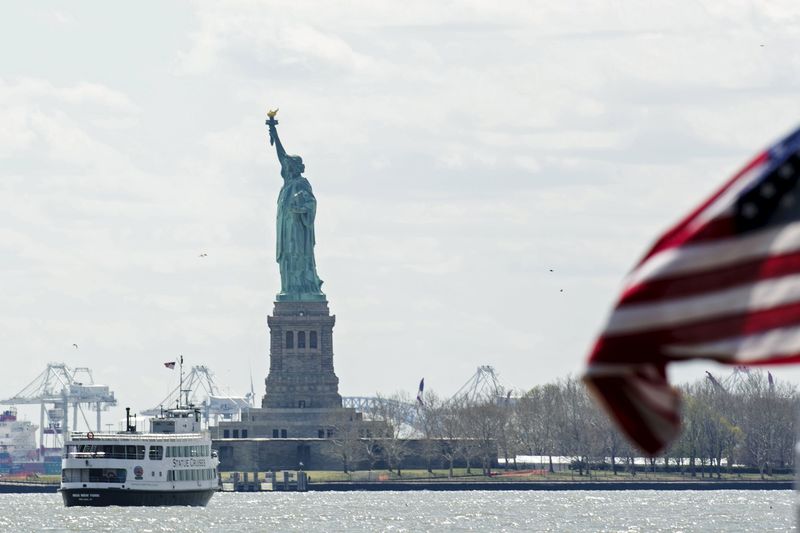Investing.com - Here are the top five things you need to know in financial markets on Monday, September 3:
1. U.S. Markets Celebrate Labor Day
Trading volumes were likely to remain light with U.S. financial markets closed in observance of Labor Day.
In observance of the federal holiday, which was signed into law in 1894 by President Grover Cleveland, there will be no trading on the Dow Jones Industrial Average, S&P 500, and the Nasdaq Composite indexes
Fixed-income markets will also be closed, which means no trading in the 10-year Treasury note.
In commodities, energy futures, including West Texas Intermediate crude oil futures will be “halted”, meaning there will be no settlement price for contracts.
Similarly, there will also be no settlement on Comex, where gold and other metals futures trade.
Other global markets will operate on a normal schedule.
Currency markets are also operating as usual, though volumes will be lighter than normal.
2. Global Stocks Drift Lower
World stocks drifted lower, hit by worries over unstable emerging market currencies and further escalation of the U.S-China trade war.
Asian stocks dropped for the third consecutive session.
The Shanghai Composite, which fell 5.3% last month on trade war worries, dropped 0.2% to 2,720, edging back at the 2 1/2-year low of 2,653 set two weeks ago.
In Europe, the region's major bourses edged slightly lower, with most sectors in negative territory.
London's FTSE 100 bucked the negative trend, with a weaker pound and the latest Brexit uncertainty providing an accounting boost for British blue chips.
3. Emerging Market Worries in Focus
Investors remained wary of emerging market currencies after sharp sell-offs in the Turkish lira and the Argentine peso last month on worries over their economic management, big current account deficits and inflation.
The Turkish lira fell more than 2% in early trade to 6.7328 per dollar, before paring some losses after Finance Minister Berat Albayrak said that there is no risk to either the country's banks or its external debts.
South Africa’s rand slumped to 14.7982 per dollar, a level not seen in more than two years.
The turmoil spilled over to a few other emerging countries.
The Indonesian rupiah fell to 14,849.30 to the dollar, its lowest levels since the country's economic crisis two decades ago.
Emerging markets have been hard hit by concerns that higher U.S. interest rates will pressure countries that have borrowed heavily in dollars in recent years.
4. Trade Tensions Persist
Trade-related headlines will continue to drive market sentiment in the week ahead, as investors watch further developments in the ongoing trade spat between the U.S. and its major trading partners.
After going past a U.S.-imposed deadline last Friday for Canada to join a trade deal that had been reached between the U.S. and Mexico, more talks between Ottawa and Washington are set to continue this week.
U.S. President Donald Trump tweeted on Saturday that there was no need to keep Canada in NAFTA and warned Congress not to meddle with the trade negotiations or he would terminate the trilateral trade pact altogether.
Investors will also be keeping abreast of the ongoing U.S.-China trade dispute to see if any more news materializes following a report that President Trump was prepared to impose tariffs on an additional $200 billion of Chinese goods as soon as this week.
5. Brexit Jitters
With under two months before Britain and the European Union want to agree a deal to end over 40 years of union, U.K. Prime Minister Theresa May is struggling to sell what she calls her business-friendly Brexit.
Michel Barnier, the European Union’s top Brexit negotiator, blasted U.K. Prime Minister Theresa May’s proposals in an interview with a German newspaper that was published over the weekend.
Barnier reportedly said May's proposed plan could mean “the end of the single market and the European project.”
May also faced criticism at home, with former foreign secretary Boris Johnson saying that May's Brexit strategy means disaster for Britain.
Johnson, who some in the governing Conservative Party favor as a potential successor to May, resigned in July in protest at the prime minister's so-called Chequers plan.
Furthermore, the Times newspaper reported 20 of May's Conservative lawmakers were now backing the grassroots 'StandUp4Brexit' campaign committing to opposing the Chequers plan.
Parliament returns from its summer break on Tuesday.
